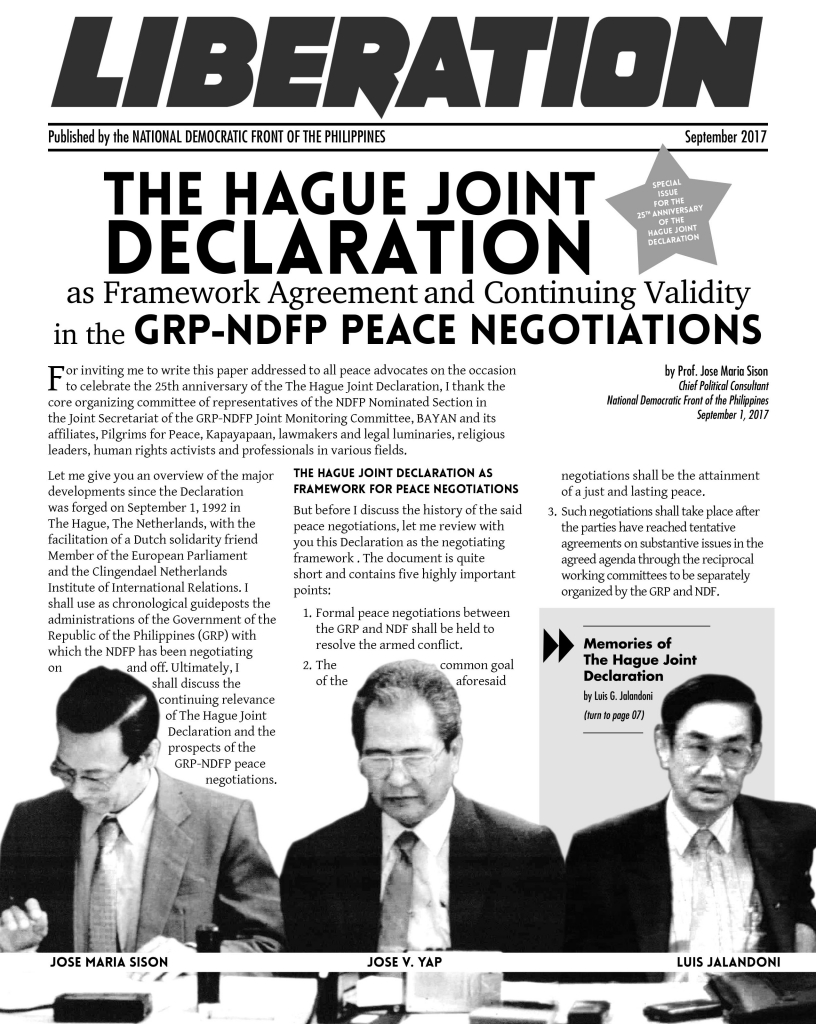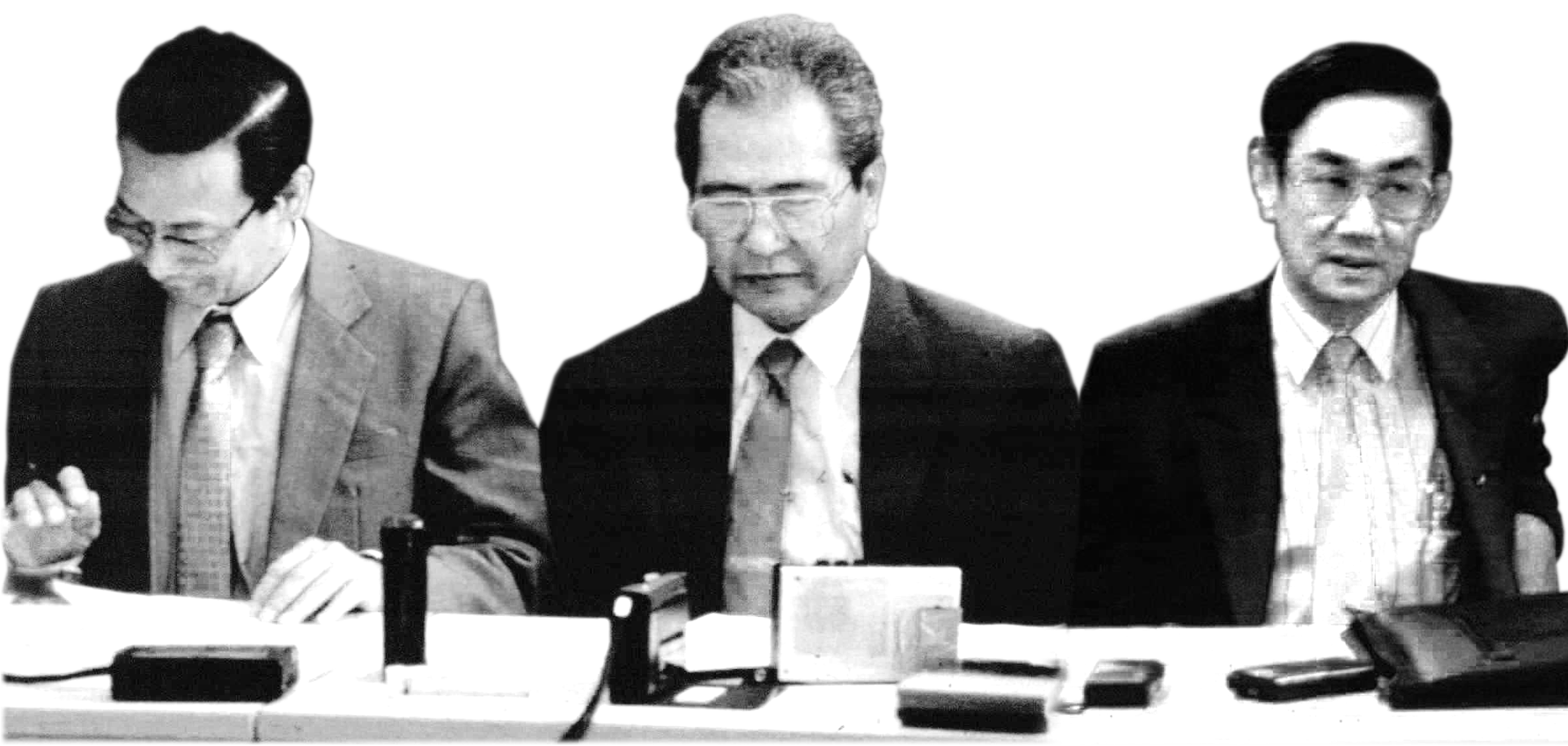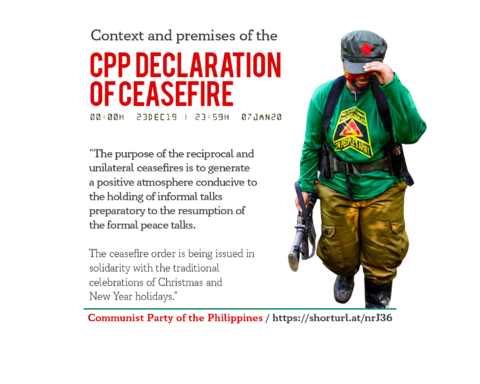by Luis Jalandoni

Special Issue for the 25th Anniversary of The Hague Joint Declaration
NDFP Representative at the Signing of The Hague Joint Declaration September 1, 1992
Both delegations of the Government of the Republic of the Philippines (GRP) and the National Democratic Front of the Philippines (NDFP) were ready to finalize the text of The Hague Joint Declaration. The media were waiting.
Due to the intense discussion on the use of the GRP Constitution as the guide of the peace negotiations and the NDFP insistence that we also had our own Constitution and Program, I proposed to put into the text: NO SURRENDER!
GRP delegate, Col. Cesar Garcia, strongly reacted: NO!
A moment of tension and impasse!
It was Prof. Jose Maria Sison who broke the impasse. He proposed the text: “No precondition that negates the inherent character and purpose of peace negotiations shall be imposed.”
Relief! Both sides accepted the alternative. This meant enshrining of the principle of non-capitulation, the principle of parity and reciprocity. Imposition by one party of its constitution would mea the submission of the other. There would no longer be any peace negotiation.
The Hague Joint Declaration also defined the substantive agenda of the negotiations: respect for human rights and international humanitarian law, social and economic reforms, political and constitutional reforms, and end of hostilities and disposition of forces. This ensured that the peace negotiations must address the roots of the armed conflict.
 Recognizing the Judicial and Legal System of the Reactionary Government
Recognizing the Judicial and Legal System of the Reactionary Government
Two years earlier, in September 1990, the NDFP representatives met with leaders of the Farabundo Marti Liberation Movement (FMLN). We asked the FMLN leaders, “Why did you accept the judicial and legal system of the Salvadoran government?” Their answer: “Because it is de facto.”
Our group led by Prof. Sison responded: “If you accept the judicial and legal system of the reactionary government as de facto, and you do not assert the judicial and legal system of your revolutionary movement as ALSO de facto, you may fall into the danger of capitulation!”
A day after the FMLN signed their peace deal with the Salvadoran government, a former FMLN guerrila fighter later narrated: “The landlords and military forcibly took away all our gains in the agrarian revolution!”
The Experience of the Moro National Liberation Front at the Tripoli Agreement of 1976
At Tripoli, Libya in December 1976, Nur Misuari, Chair of the Moro National Liberation Front (MNLF) was put under heavy pressure by the Organization of Islamic Conference (OIC). The OIC, led by Moammar Khadafi, insisted that Nur Misuari agree to put in writing that the GRP Constituion is the guide to the GRP-MNLF Agreement. An eyewitness to that event, Former Philippine Foreign Secretary Pacifico Castro, narrated this to us. It was like a dagger in the heart of Nur Misuari, said Secretary Castro.
Attacks against The Hague Joint Declaration by Secretary Deles and Mr. Padilla of the GRP
The principle of non-capitulation, parity and reciprocity was targeted for attack by Secretary Teresita Deles and Alexander Padilla. In February 2011, the GRP Negotiating Panel led by Padilla declared The Hague Joint Declaration as “a document of perpetual division”. This attack on the framework and foundation of the GRP-NDFP peace negotiations was followed by the attack of Secretary Deles and Mr. Padilla on the Joint Agreement on Safety and Immunity Guarantees (JASIG) as “inoperative”. Padilla likewise attacked the Comprehensive Agreement on Respect for Human Rights and International Humanitarian Law (CARHRIHL) as “an NDFP propaganda document”.
Continuing Relevance of The Hague Joint Declaration
Up to now, 25 years after, and in the future, THJD, is very relevant. The principle of non-capitulation, parity and reciprocity must be upheld to effectively oppose the United Nations’ paradigm of DDR, Disarmament, Demobilization, and Reintegration, and other attempts at undermining revolutionary movements striving for national and social liberation, genuine independence and a just and lasting peace.










